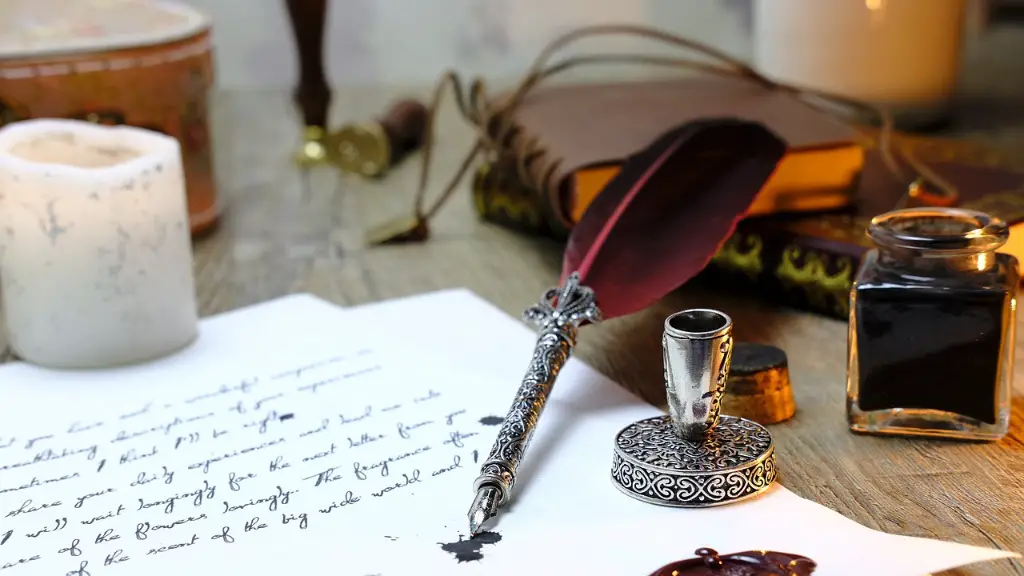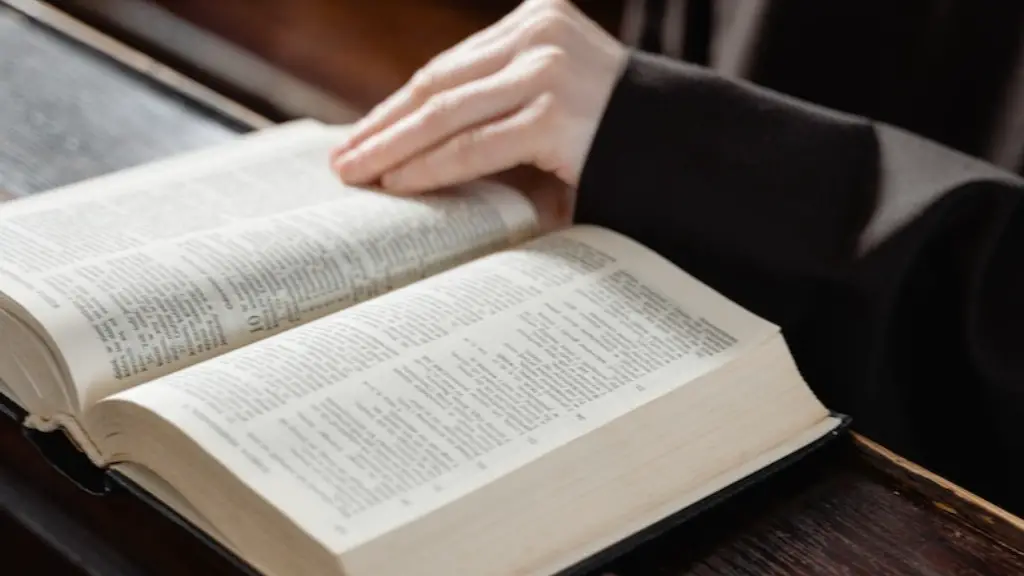Understanding the Task
When faced with a comparative poetry essay it can be difficult to know where to start. It is important that you understand the requirements of the essay. Comparative essays involve evaluating the similarities and differences between two or more things. In this case, you will be comparing poems. The important elements to consider when writing a comparative poetry essay are form, structure, language, and meter. Additionally, you should consider imagery, symbolism, theme and other literary devices.
The essay should not just be a summary of each poem but an analysis that evaluates the differences and similarities between them. It is an essay based on your opinion as to how well the two poems compare on common points. The essay should provide evidence to support the opinion and offer evidence to back up any claims. Each point should be incorporated in a strong central thesis statement and each body paragraph should include a clear topic sentence.
Choosing the Poems
When writing a comparative essay it is important to choose two works that have something in common. This can be something as simple as a common theme or as complex as a shared writing style. This will form the basis of the essay, as the comparison between the works should explore this common ground. Once you have chosen your works, you should familiarise yourself with them by actually reading the poems. Note down any points that catch your attention, or any questions you have, as you will use these in the essay.
You should also take the time to research the poems that you have chosen. Consider why they were written and who wrote them as this can provide you with insight into the poem and offer you ideas on how to write your essay. It may also be helpful to focus on other aspects of the poem such as the rhyme scheme, allusion, point of view and so on.
Planning Your Essay
Now that you have chosen your poems and familiarised yourself with them it is time to begin planning your essay. Take the questions and impressions that you noted down from reading the poem, and develop them further. Think about how you want to structure the essay, as this will impact on the points you choose to make and support. Writing an outline of your essay is a great way to ensure that each point is dealt with in the clearest and most logical way. You can also use the outline to see which points work best together and ensure that the essay has flow and clarity.
Writing the Essay
Now the actual writing of the essay can begin. The introduction should clearly introduce the essay topic, explain why it is important and provide a brief overview of the points you will make throughout the essay. The body of the essay should then explore each point in more detail, using evidence from the poem to support your point. Each paragraph should also include evidence from outside sources to reinforce your claims. Finally, the conclusion should reiterate the main points of the essay and provide an overall opinion of the comparison.
Proofreading and Editing
The next step is to proofread and edit your essay. Use the active voice where possible, avoid repetition and keep the essay to the point. This is also an opportunity to add more evidence or further detail. Additionally, if you feel comfortable with the essay, try reading it aloud to check the flow of the language and sentence structure. Finally, ask somebody to read over your essay and provide feedback as they may be able to point out areas of improvement or errors you have missed.
Using Emotional Triggers, Grammar and Analysis
When writing a comparative poetry essay it is important to use emotional triggers to engage the reader. This can be done through the use of vivid language or imagery that makes the readers feel connected to the topic. Additionally, make sure the language used is both accurate and appropriate. Advanced grammatical structures can be used to demonstrate a full understanding of the subject matter. Keep the sentences concise, avoiding long and complex sentences.
Most importantly, make sure to include your own analysis and interpretation of the essay. Don’t just write a summary of the poems but use them as evidence to back up your opinion. Evidence should be clearly referenced and where possible be supported by data from external sources.
Advanced Writing Techniques
Advanced writing techniques should be used to strengthen the essay and make the writing more interesting. Word choice is particularly important; try to choose words that both accurately describe the poem and engage the reader. Additionally, avoid the use of generic terms and opt for a more specific term that relates to the content of the essay. Similarly, sentence structure helps to create a more varied and interesting essay. Vary the length and complexity of the sentences to keep the reader interested and provide a sense of flow.
Finally, use metaphor and simile to convey the meaning of the poem more effectively as this will help to bring your essay to life and make it more engaging. Additionally, pay attention to how you explain ideas in the essay as this can help to draw the reader in and make them feel more connected to your opinion.
Research Techniques and Sources
The final step in writing a comparative poetry essay is to research the wider context. This could be a review of the poets’ other works or research into the themes and symbols used in the poems. It is particularly important to make use of external sources when writing a comparative essay as an external perspective can be used to inform your own opinion. Try to find sources that are scholarly and reliable and make sure that direct quotes are used appropriately and referenced accurately.
In conclusion, writing a comparative poetry essay can be a daunting task, but by following these steps you can be sure of creating an essay that is both accurate and engaging. While it is important to consider the formal elements of the poem, it is even more important to include your own insight and analysis.



